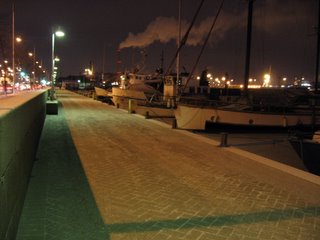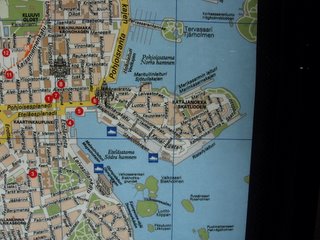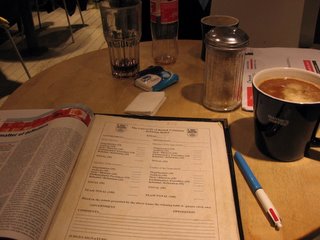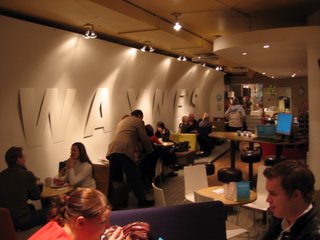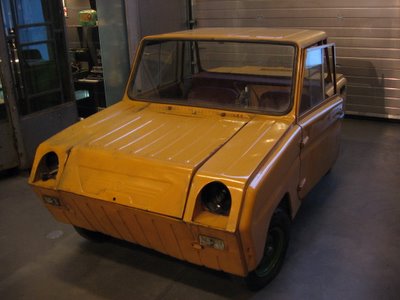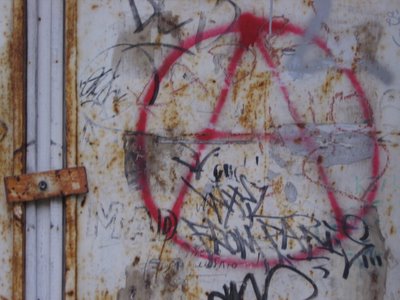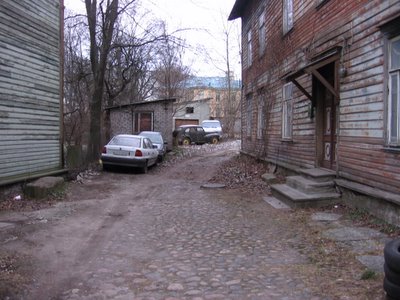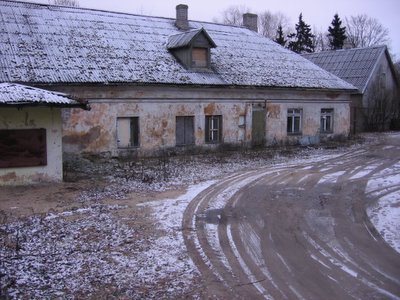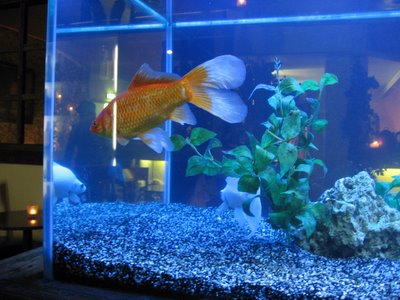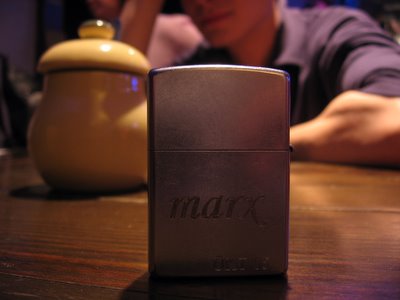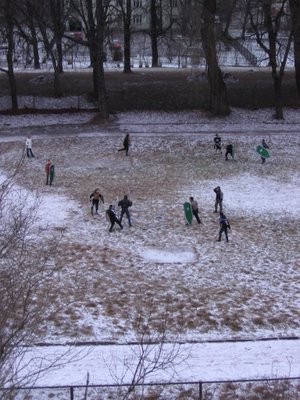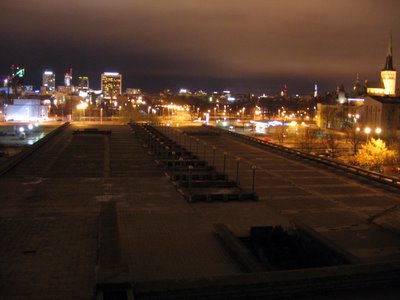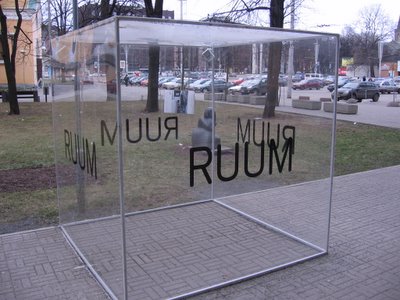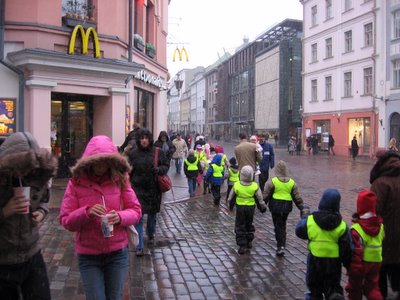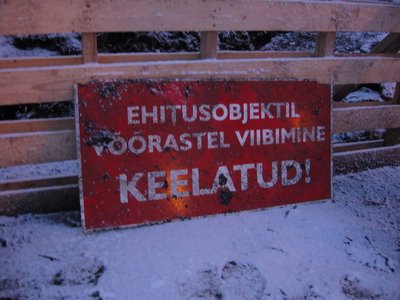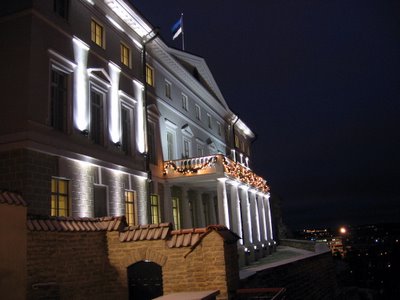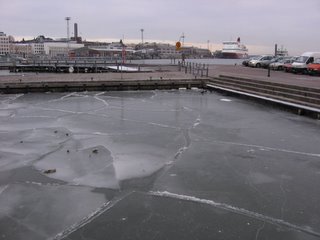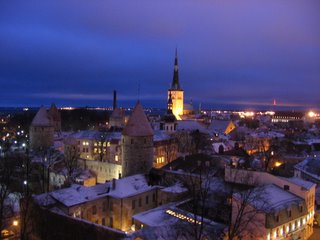After Sarah left, I took the tram up to Gabe’s apartment, making sure to mark it as a GPS coordinate before heading back into town. That proved a wise choice, since it turns out the number one tram only runs until about 6pm. With the transit map we got at tourist information, and the waypoint so as to know when to get off, I didn’t have any trouble finding my way back. In cities with unknown languages, I am often extremely grateful for quadrangulation using satellites.
Starting from the ferry terminal where I will be leaving tomorrow evening (which I also marked), I walked across a narrow section of the city that defined the edge of a long peninsula: extending out into the icy sea. Stuck in the sea ice, which was strong enough to survive a solid blow from a large stone, were a whole collection of sailing vessels, as well as other kinds of boats:
I traced the route shown in the photograph below, it being about one and a half kilometres along each edge of this section of town. While it was certainly quite cold, it wasn’t as bad as it was during the coldest nights in Tallinn. That said, it was only around six or seven in the evening. In the darkness, I passed at least a dozen Finnish people walking their dogs along the path that follows the shoreline. Sitting out on the ice are large domes of concrete, with a metal rod extending from the top. My supposition is that they are meant to demonstrate when the ice has become thin and weak. I wonder if and how they recover the sunken ones in spring.
Whereas Tallinn strikes me as an incredible historical palimpsest: rich with architectural layers partly destroyed and then rebuilt upon, Helsinki has a much more straightforward feel. A thoroughly modern city, despite the presence of many Georgian buildings, you don’t find menacing open holes all over the place, nor enormous variations in architectural style or houses constructing with one wall of crumbling stone. While that may be somewhat less interesting, it should at least increase my appreciation for the variety to be seen during my last days in Tallinn.
Sarah and I were both disappointed to learn that the modern art museum is closed at the moment, since they are busy setting up an exhibition for January. We had been told that it was the highlight of the city. For tomorrow, I am considering making my way to the Cable Factory: an edifice that retains the name of a role it no longer plays. The Lonely Planet describes it as: a “bohemian cultural centre featuring studios, galleries, concerts, theatre and dance performances, as well as the obligatory cafe and restaurant.” Sounds like a cool place.
Aside from a bit of outdoor music, the only performance we saw in Tallinn was the selection of live music at Scotland Yard: an eclectic pub near the port. Watching people dancing while eating raspberry soup and eyeing the huge fish tank made for it being an interesting place – even if the service was really terrible. Having already gone to see the new Harry Potter film (problematic, but not terrible) at the Coca Cola Plaza, perhaps Sarah and I will have the chance to see something more cultural during the course of the day and a half in Tallinn we will have together once we are reunited tomorrow night.
[Entry modified, 23 December 2005]

